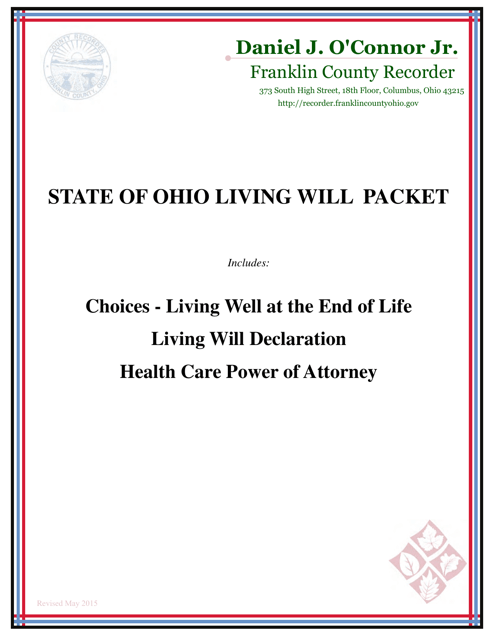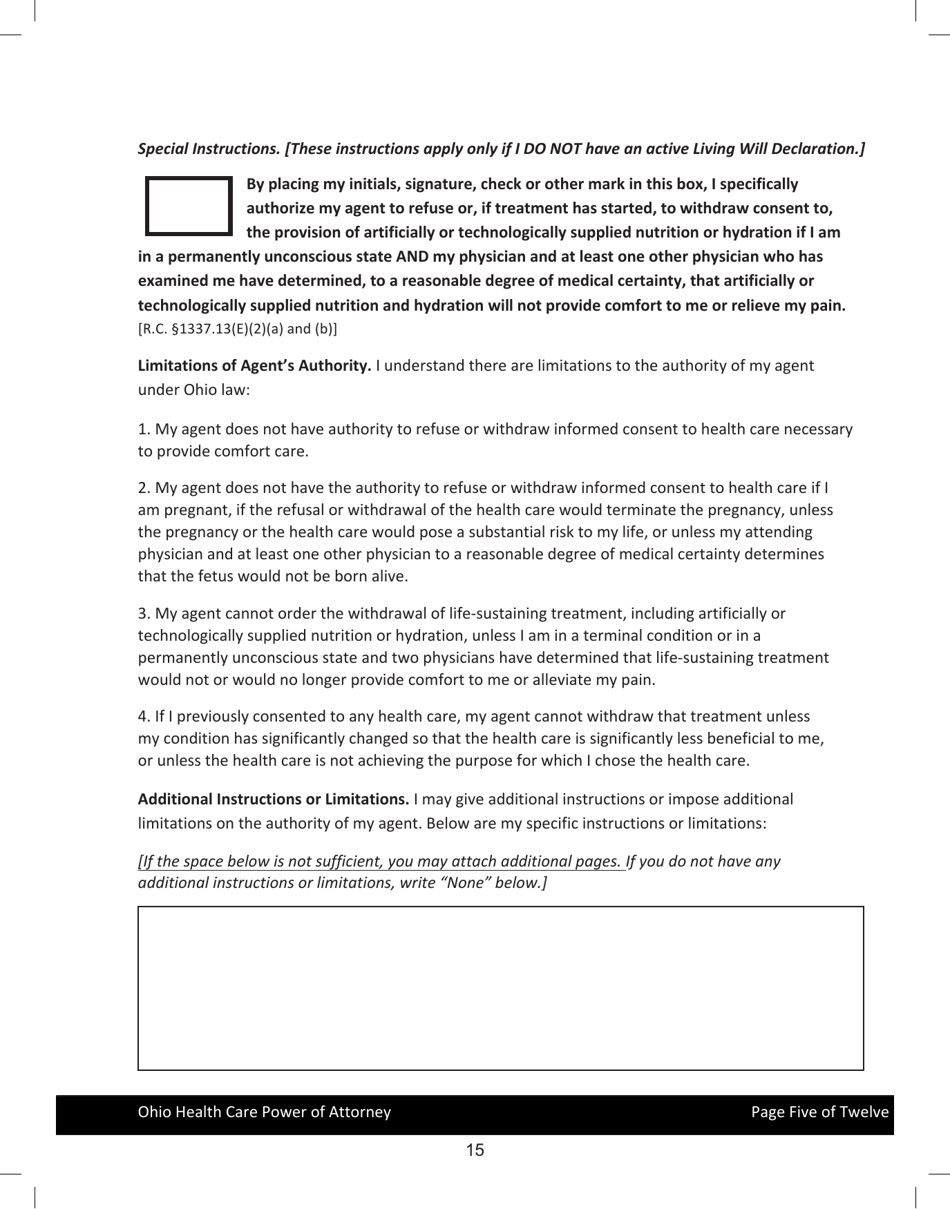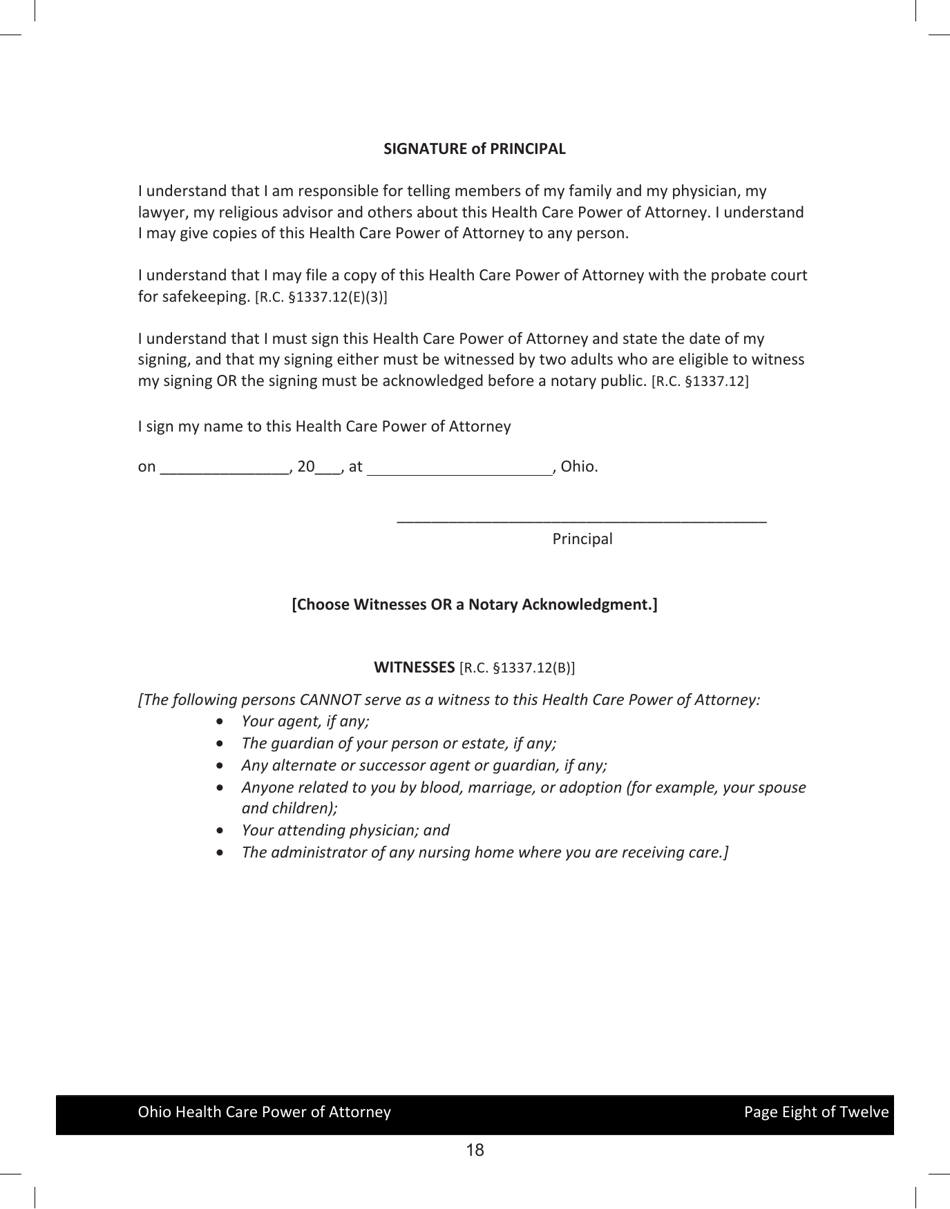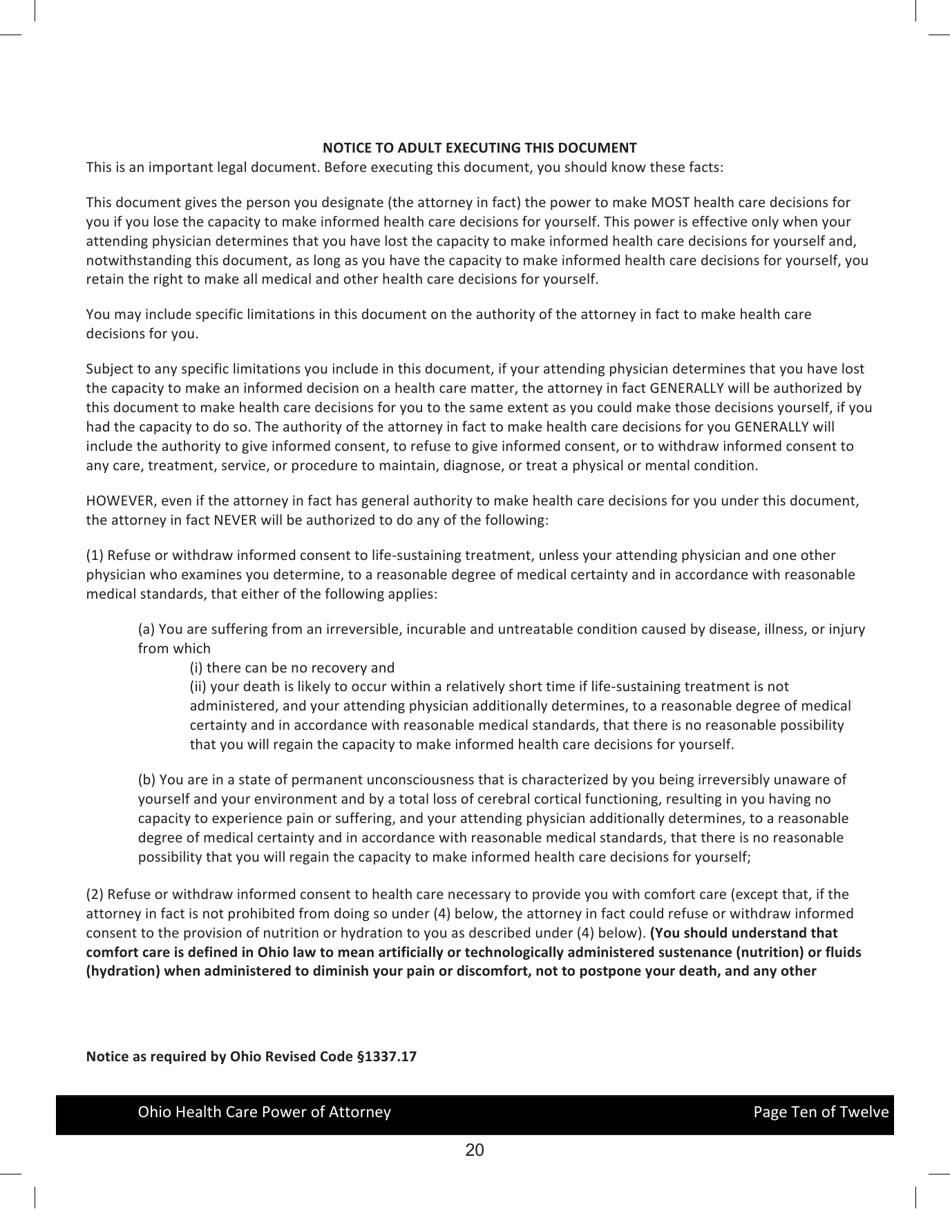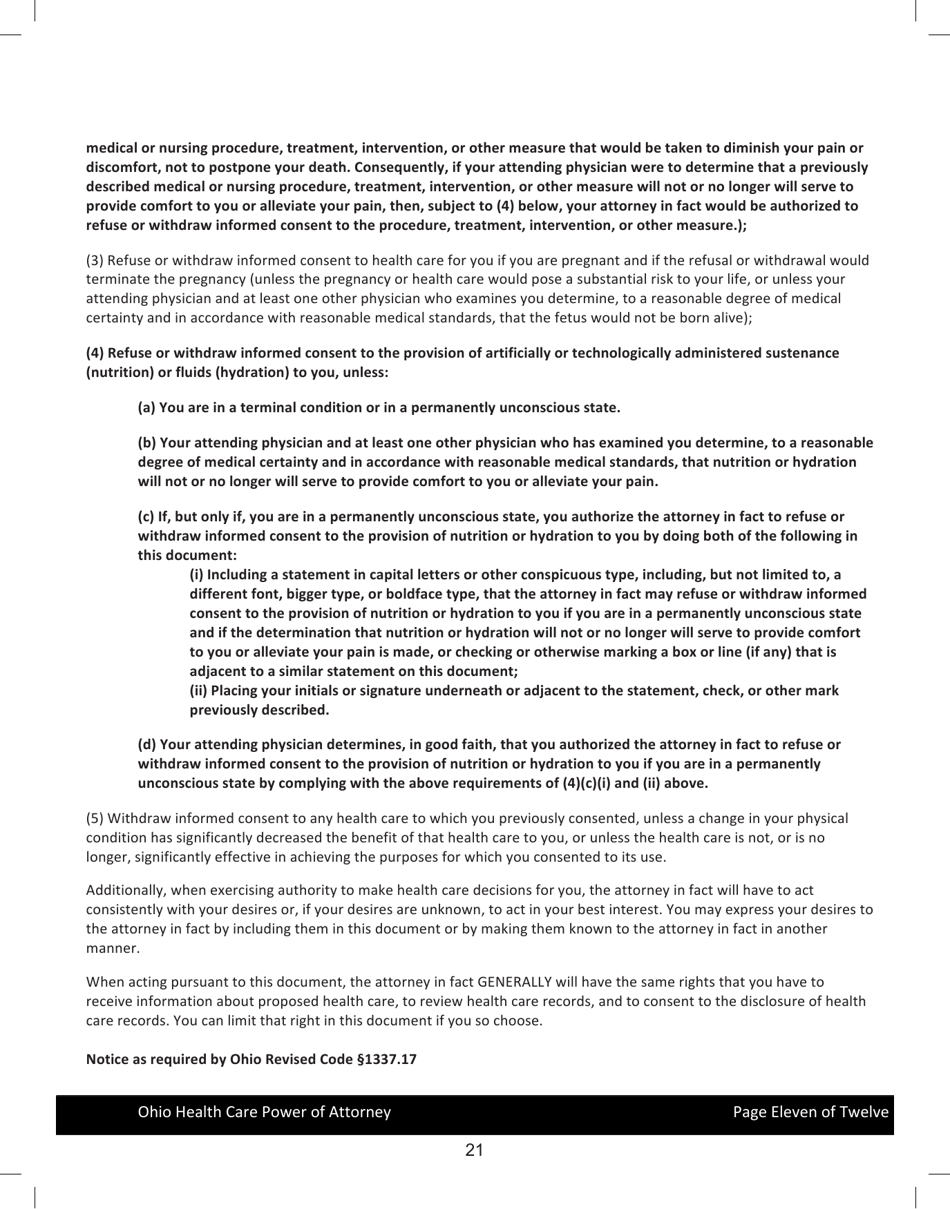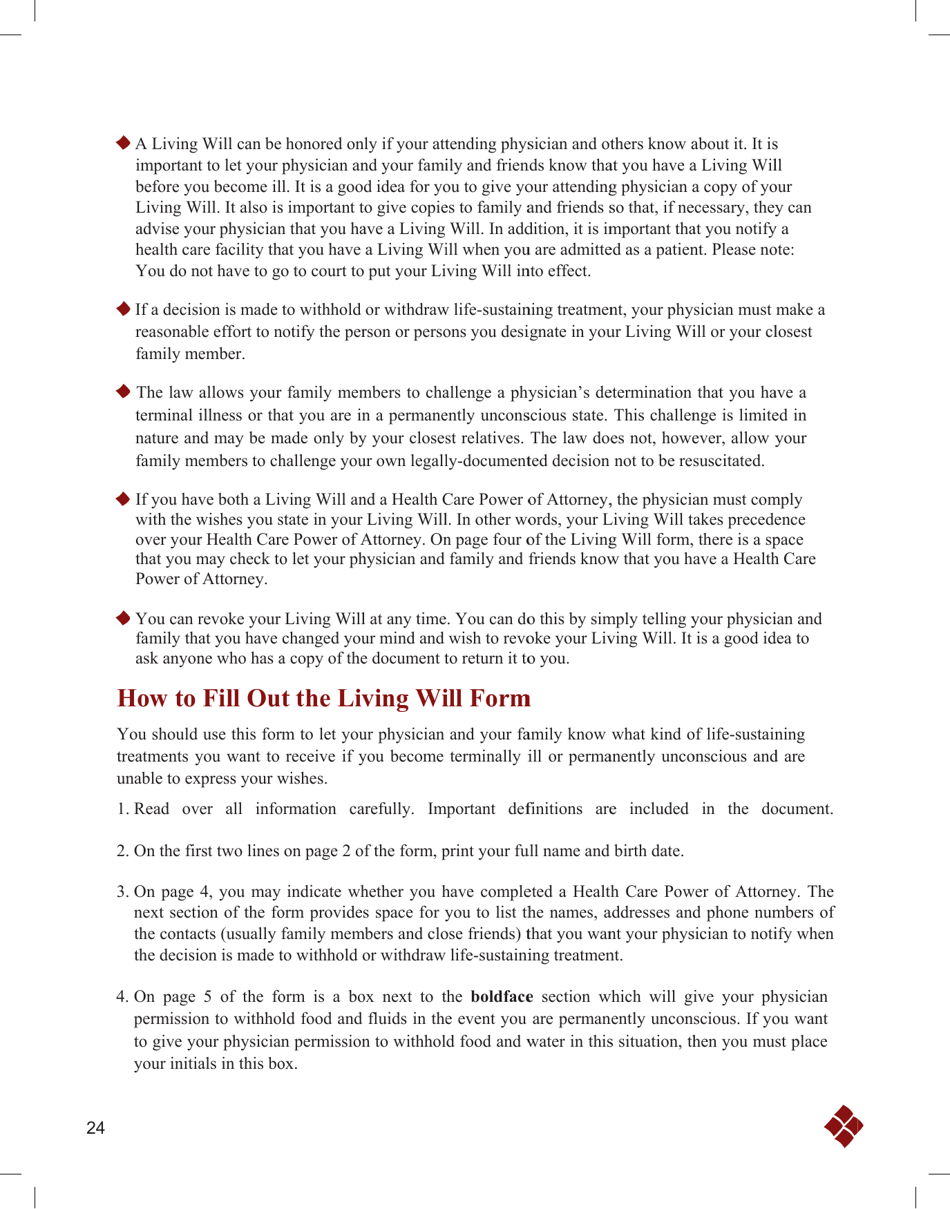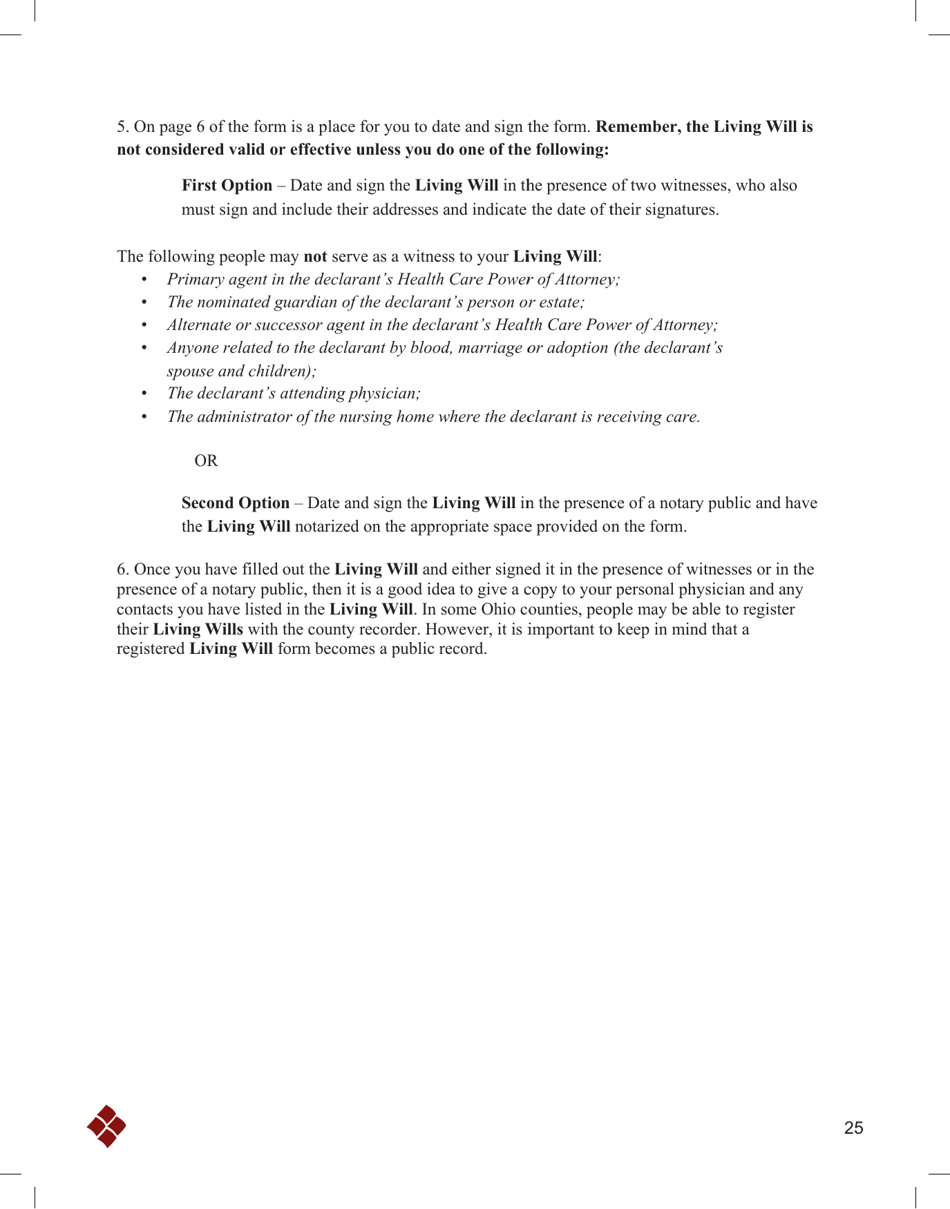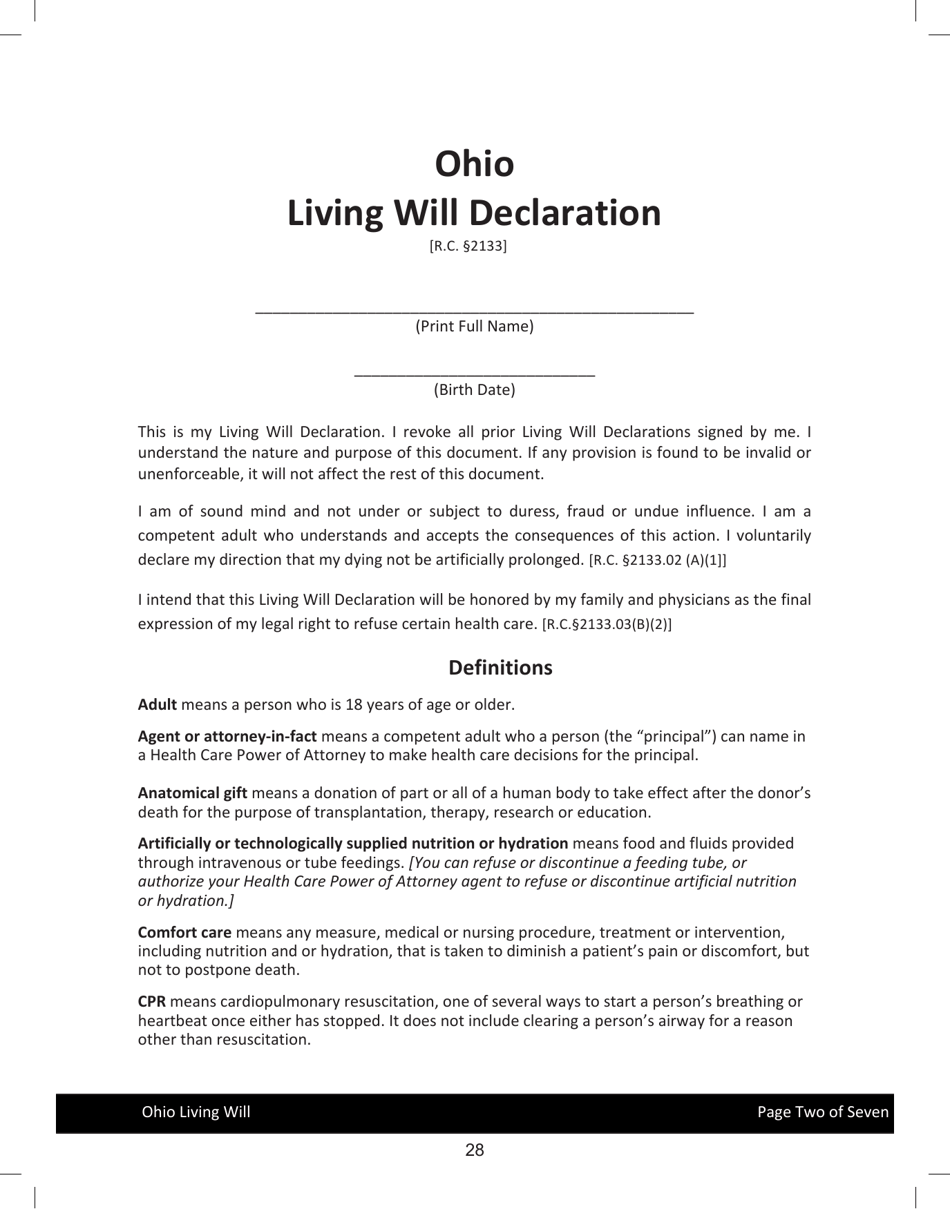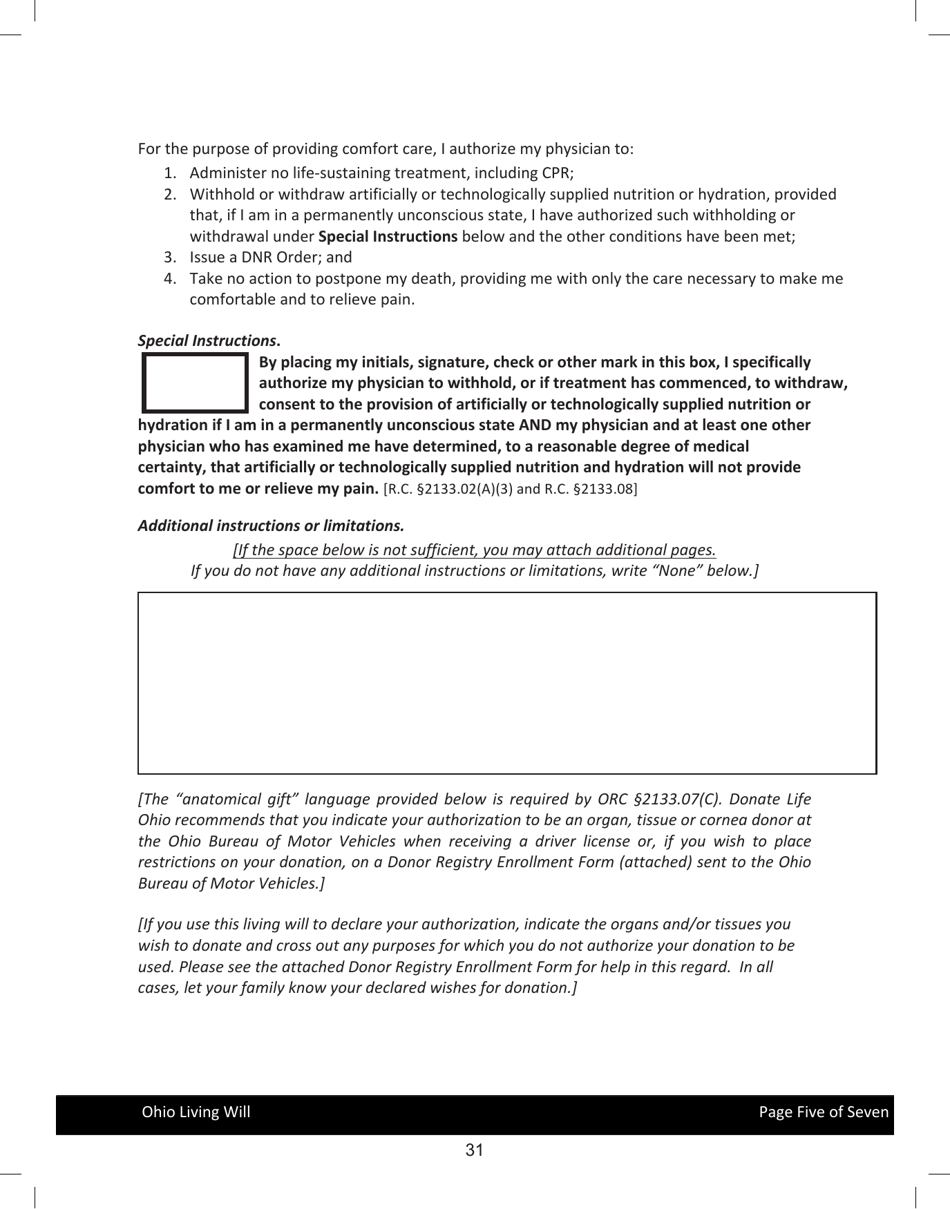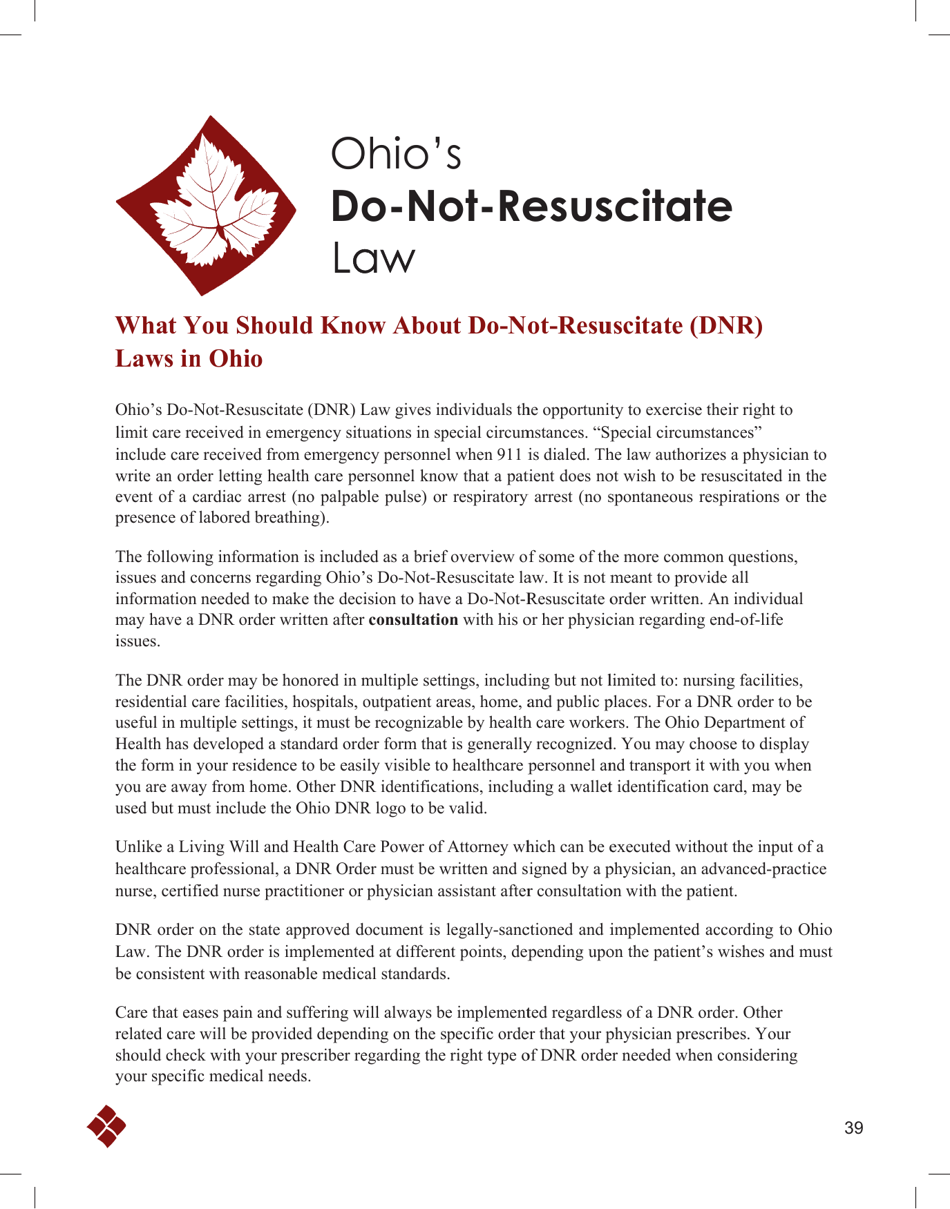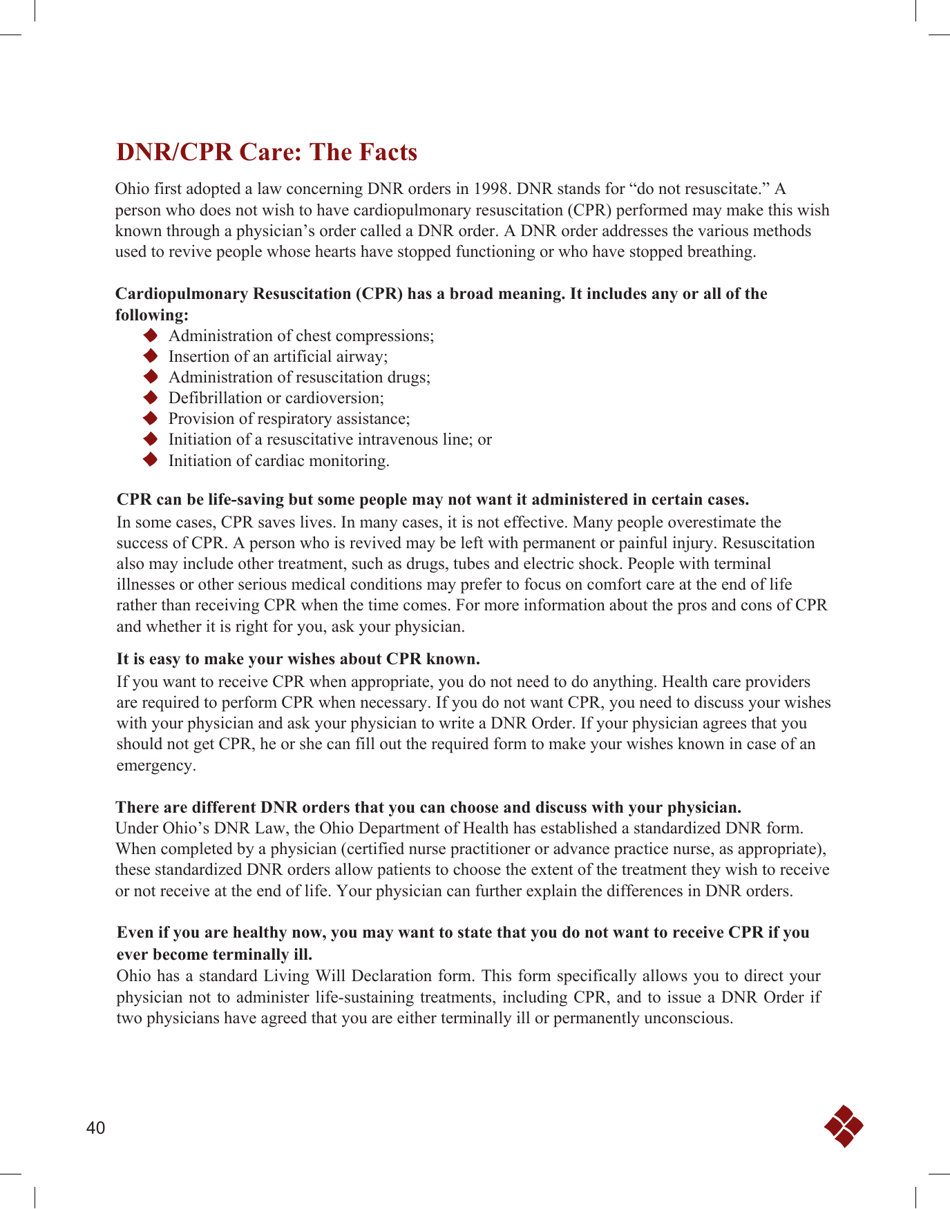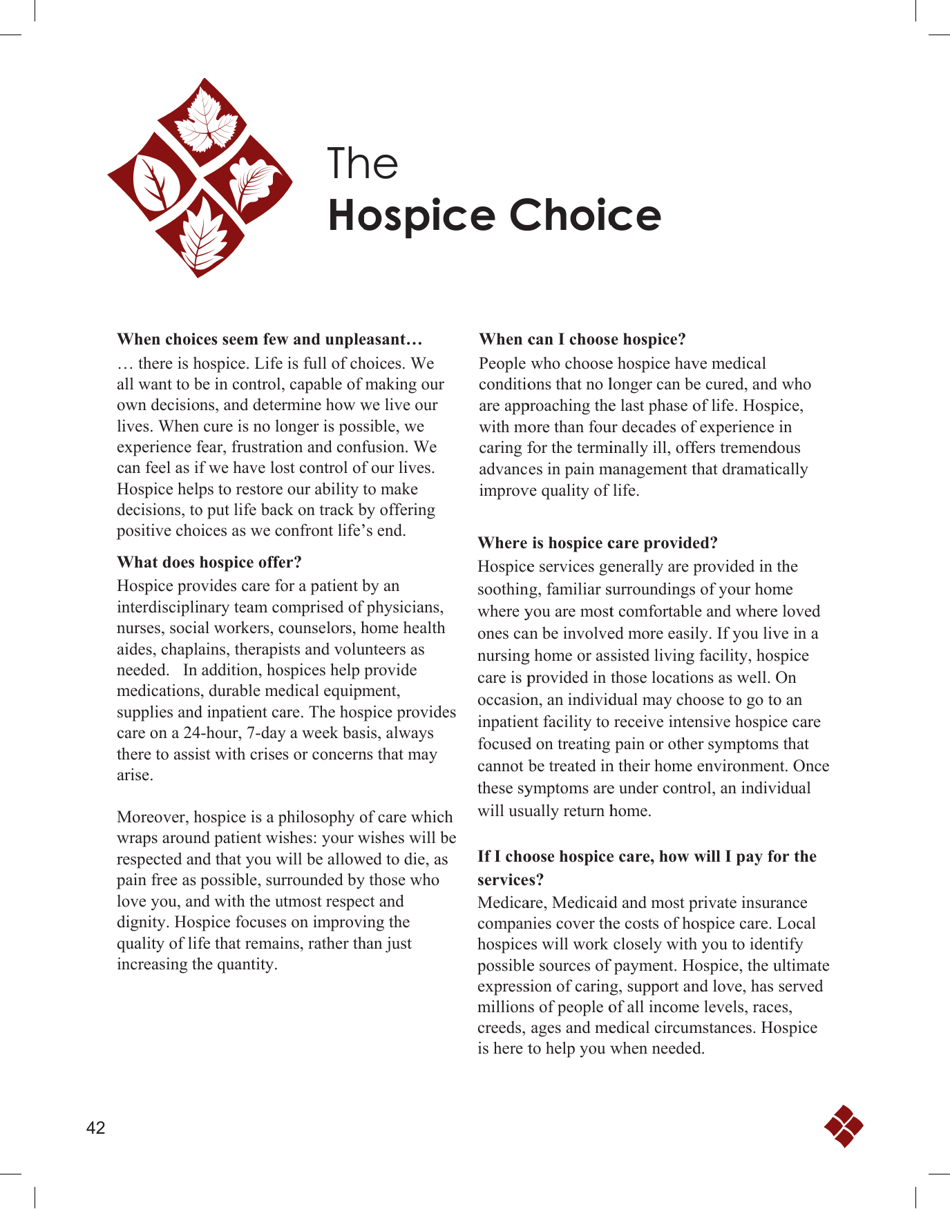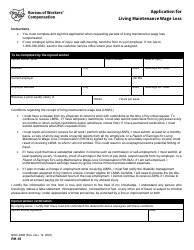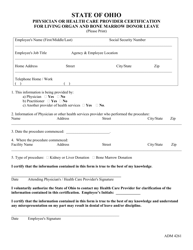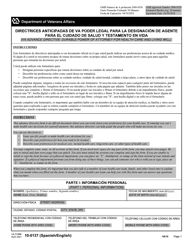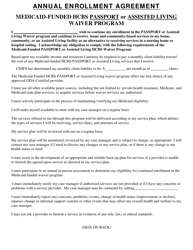State of Ohio Living Will Packet - Ohio
An Ohio Living Will - sometimes confused with an Advance Directive - is a crucial part of a patient's medical records, which all too often do not indicate the appropriate palliative care measures the patient desires. Most people do not have adequate paperwork when illness strikes. In the absence of a legal will, all decisions about medical care become the responsibility of the spouse, the children, and other family members - or even a third party. These people may not be aware of the patient's wishes, or they may not choose to follow the patient's unwritten verbal directives.
Download a ready-made State of Ohio Living Will Packet prepared by the office of the Franklin County Recorder on May 1, 2015 , by clicking the link below.
An Ohio Living Will requires two witnesses or a notary and is not valid if the patient is pregnant (especially if the fetus has a chance of surviving outside the mother's womb) as per Sections 2133.01 to 2133.26 of the Ohio Revised Code .
What Is an Ohio Living Will?
A Living Will is a written, legal document that spells out the medical treatments an individual would and would not want to be used to keep them alive. The form also clarifies the preferences for other medical decisions, such as pain management or organ donation. The person for whom the will is created is called the Principal.
The document may be revoked at any time as long as the Principal still has the mental capacity to do so. The Principal may also elect a trusted individual - or agent - to make decisions on their behalf when they are no longer able to speak for themselves.
How to Make a Living Will in Ohio?
Difficult health-related situations can occur to any person at any age, so it is a good idea for all adults to have a will. Usually, a basic ready-made Living Will template should address most of the medical procedures common in life-threatening situations, such as resuscitation via electric shock, ventilation, and dialysis. An individual can choose to allow some of these procedures or none of them. They may also indicate whether they wish to donate organs and tissues after death. Even if a person refuses life-sustaining care, they can express the desire to receive pain medication throughout final hours including the related provisions in their Living Will.
When completing a will an individual may appoint an agent - or a health care proxy - to make decisions on their behalf in the event of incapacitation. No notarization is required unless otherwise specifically requested by the proxy.
